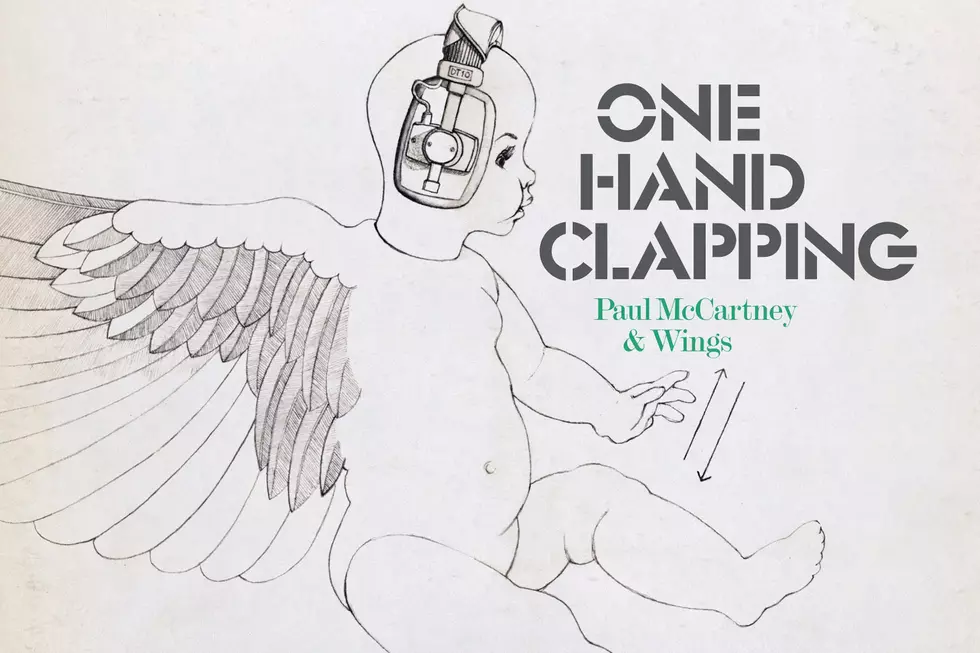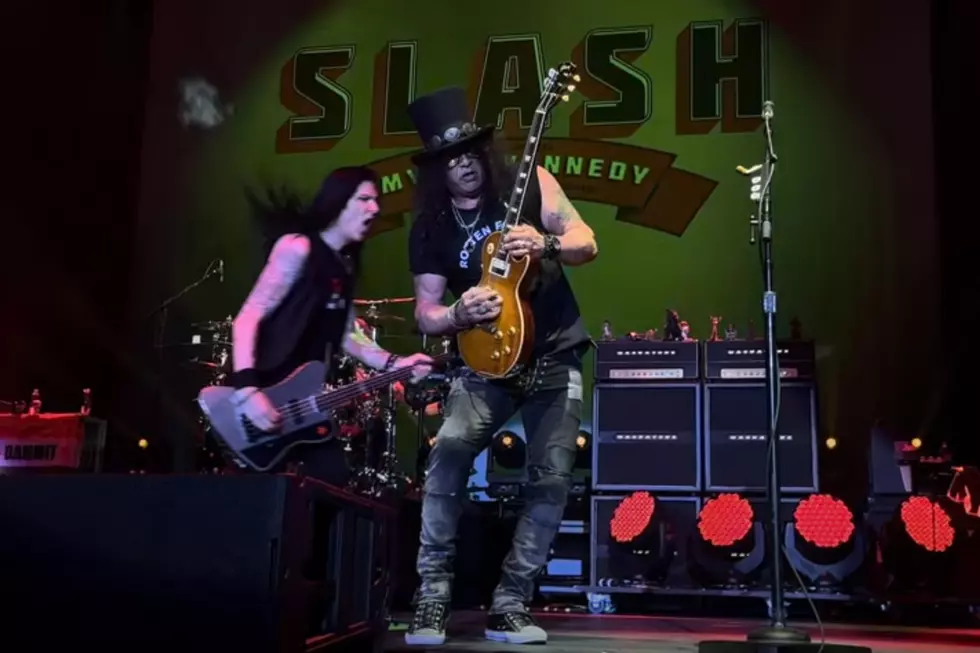
35 Years Ago: Girlschool Challenge the Heavy Metal Boys Club With ‘Demolition’
New Wave of British Heavy Metal bands came in a variety of styles, and in June 1980, it took on another form when the London-based, all-female quartet Girlschool released their debut album, Demolition.
This may not seem like such a big deal today, when women have carved a strong and important presence throughout rock music, but back in the '70s, their numbers were shockingly scarce. When Girlschool founders Kim McAuliffe (vocals, guitar) and Enid Williams (bass) first joined forces in the short-lived Painted Lady, their bandmate was future Go-Go's bassist Kathy Valentine. So few female rockers were available on the scene back then that it was some kind of triumph when Girlschool solidified their lineup in 1978 with the arrival of lead guitarist Kelly Johnson and drummer Denise Dufort.
And then, just as the overwhelmingly male contingent of New Wave of British Heavy Metal bands were coming of age during the post-punk era, Girlschool had to prove themselves on the cramped and dirty club stages in London. They acquitted themselves so well before the hard-drinking, bar-brawling crowds that it became a testament to their musical prowess. If anything, Girlschool had to be twice as good as their male peers to make some headway, which they did when Motorhead's Lemmy Kilmister invited them to open for the speed merchants on their spring 1979 tour of the U.K.
Here, Girlschool proved themselves once again (though threats from Kilmister and the Motorhead road crew, should fans show any disrespect, probably didn't hurt), before heading off to Europe for another round of shows. this time supporting Ted Nugent. An even more seasoned and confident Girlschool returned from these character-building jaunts, ready to show England what they had learned -- especially now that they had a record contract.
After kicking off their new business partnership with the "Emergency" single in January 1980, Girlschool embarked on yet another profile-raising tour opening for Uriah Heep while they began working on the full-length debut.
Demolition turned out to be a distinctive work, thanks to a strong melodic thread running through standouts like "Demolition Boys," "Nothing to Lose," "Deadline" and "Emergency." Beyond these songs, the band revealed a knack for delivering more traditional hard-rock crunch on "Take it All Away," "Breakdown" and "Baby Doll."
Demolition rose to No. 28 on the U.K. chart, slowly spreading Girlschool's name and reputation across metal's tight-knit community. Then they hit the road again, backing the newly Dio-fronted Black Sabbath, before pairing up with Motorhead for another run.
Girlschool had arrived, leaving little doubt that they could hold their own against their testosterone-fueled metal peers. Unfortunately, once the excitement for the New Wave of British Heavy Metal started wearing off, Girlschool's career gradually faded, mirroring the careers of so many other bands from the era. But none of that can diminish their pioneering accomplishments on behalf of gender equality in rock 'n' roll.
Top 50 Classic Heavy Metal Albums
More From Ultimate Classic Rock









